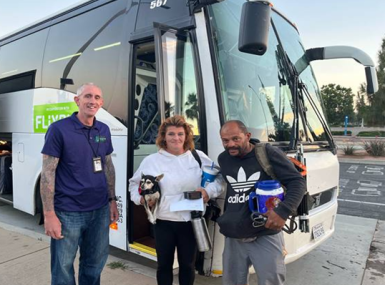Congress deliberates the future of the Affordable Connectivity Program
Author

Seamus Dowdall

Maxx Silvan
Upcoming Events
Related News

Key Takeaways
On January 10, the bipartisan Affordable Connectivity Program Extension Act of 2024 (H.R. 6929 and S. 3565) was introduced in the U.S. House of Representatives by Yvette Clarke (D-NY) and Brian Fitzpatrick (R-PA) and in the U.S. Senate by Senators Peter Welch (D-VT), J.D. Vance (R-OH), Jacky Rosen (D- NV) and Kevin Cramer (R-ND). The bill provides $7 billion in appropriations to extend funding for the Affordable Connectivity Program (ACP) through the end of 2024. The bill does not include any programmatic changes to the ACP.
Funding for the ACP is projected to expire after April 2024, and counties strongly support the continuation of the program as a key driver in making internet access more affordable for families in need.
What is the context?
The ACP provides a monthly consumer benefit of $30 to eligible households to afford high-speed internet services. The program has enrolled over 23 million households in high-speed affordable internet access, and counties have supported the promotion of the program through targeted outreach efforts, digital adoption events, and partnerships with participating internet service providers. The ACP is funded on a one-time appropriation of $14.2 billion provided by the Bipartisan Infrastructure Law in November of 2021.
In anticipation of a lack of funds, the Federal Communications Commission (FCC) announced wind-down procedures for the program, and on February 8, 2024, the FCC stopped accepting new enrollments for the program. The FCC also announced that all participating internet service providers were required to provide a written notice to consumers by March 19 advising them that the ACP is ending, and the communications needed to state the impact that the end of the ACP would have on households’ broadband service and bills.
On April 9, the FCC announced that April would be the final month of full reimbursement and, absent additional funding, subscribed households would receive the following partial reimbursements in May:
- Non-Tribal Benefit: $14
- Tribal Benefit: $35
- Device Benefit: $47
Why does this matter to counties?
The end of the ACP, in addition to the risk of disconnecting millions of households from access to high-speed internet, would have significant economic effects on county residents.
According to a recent consumer survey by the FCC, more than three-quarters (77 percent) of respondents said that losing their ACP benefit would disrupt their internet service by making them change their service plans or drop internet access entirely. About half of survey respondents (47 percent) also reported having either no internet service or relying solely on mobile internet service prior to receiving the ACP. These findings were roughly similar across both urban and rural respondents, and the majority of this group (80 percent) cited affordability as the reason for having inconsistent or no service.
The end of the ACP would also bring about negative economic effects for the broader telecommunications ecosystem. An estimate by the Benton Institute for Broadband and Society projects that the ACP generates about $16 billion in economic productivity, which is approximately twice the annual cost of administering the ACP based on current enrollment figures.
What next steps can counties take?
The Affordable Connectivity Program Extension Act of 2024 now has 216 bipartisan cosponsors in the House, and on March 15, a group of 33 bipartisan Senators sent a letter for inclusion for the ACP in negotiations for appropriations for Fiscal Year (FY) 2024. With the passage of FY 2024 appropriations and no inclusion of funding for the ACP, current advocacy is now targeted toward incorporating the Affordable Connectivity Program Extension Act of 2024 in a supplemental appropriations package or as a stand-alone bill.
NACo’s ACP Outreach Toolkit includes a template advocacy letter to your congressional delegation, county best practice stories to share the impact in your community, and more resources.
Resource
Outreach Toolkit for Counties: The FCC’s Affordable Connectivity Program

Related News

U.S House Subcommittee Considers Reauthorization of the State and Local Cybersecurity Grant Program
The SLCGP provides critical funding to state and local governments to enhance cybersecurity readiness and protection but is set to expire on September 30, 2025.

Team approach, website help California county tackle homelessness
Riverside County, Calif. created a multidisciplinary team to better and more efficiently serve its unsheltered population and share success stories and data through a website.

Podcast: The CIO Reserves
Greenbrier County, W.Va. Commissioner Tammy Tincher, Cook County, Ill. CIO Tom Lynch and NACo CIO Rita Reynolds discuss the pilot CIO Reserves program, which offers IT experts to help rural counties assess their technology and cybersecurity needs.